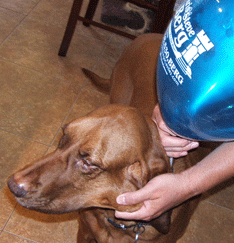We were just assigned our seventh Team Lead since Catholic Healthcare West had outsourced me to PerotSystems. I’d been part of Perot’s Business Applications team for about sixteen months, and this seventh Team Lead was the first to come to Phoenix to look her team members into our eyes. She was brand new to the account and now had to give us our annual reviews, without the benefit of ever having viewed us. Like so many other corporations, Perot has the employee review herself, then during the annual review the employee and her direct supervisor compare reviews to come to an agreement. I’m often my own worst critic, so I was modest in ranking most of the achievements I was being measured on. But when I got to Client Satisfaction and Integrity, I gave myself the highest possible scores. Nina (pronounced Nine-ah), had seen a few of the accolades given me by clients who I supported, so she conceded the penultimate score on Client Satisfaction. But she had no way to assess my integrity. So she apologized, explained she was handling everyone on her new team the same, and gave me the average score, what would be a “C” on Cameron’s report card, for my Integrity. My reaction? This was the most honest evaluation that Nina could have given, given the circumstances. How can anyone judge another person’s integrity without evidence?
First of all, just what is integrity? I like Wikipedia’s definition:
Integrity is the basing of one’s actions on an internally consistent framework of principles. Depth of principles and adherence of each level to the next are key determining factors. One is said to have integrity to the extent that everything one does on the same core set of values. While those values may change, it is their consistency with each other and with the person’s actions that determine the person’s integrity.
(Emphasis mine.)
Words have precise meanings, and it’s the imprecise use of words that causes so many problems.
(My Mom and I had this debate yesterday: She — “I heard it on TV today… we’re definitely in a recession.” Me — “Definitely, as Read more


 (Sorry Kris and Steve, we couldn’t get one that shows your phone number, but you can see “erg” and the castle.)
(Sorry Kris and Steve, we couldn’t get one that shows your phone number, but you can see “erg” and the castle.)
 Last Friday, on January 5, our nephew Bryan celebrated his twenty-first birthday. Less than a week earlier, on New Year’s Eve, he wasn’t yet old enough to join in a New Year’s champaign toast at the club where’s he’s played gigs for the past few years. He graduated from high school three Decembers ago, last month he celebrated his second wedding anniversary, and later this month he’ll begin his fourth year in the US Navy, where he plays sax in the
Last Friday, on January 5, our nephew Bryan celebrated his twenty-first birthday. Less than a week earlier, on New Year’s Eve, he wasn’t yet old enough to join in a New Year’s champaign toast at the club where’s he’s played gigs for the past few years. He graduated from high school three Decembers ago, last month he celebrated his second wedding anniversary, and later this month he’ll begin his fourth year in the US Navy, where he plays sax in the 